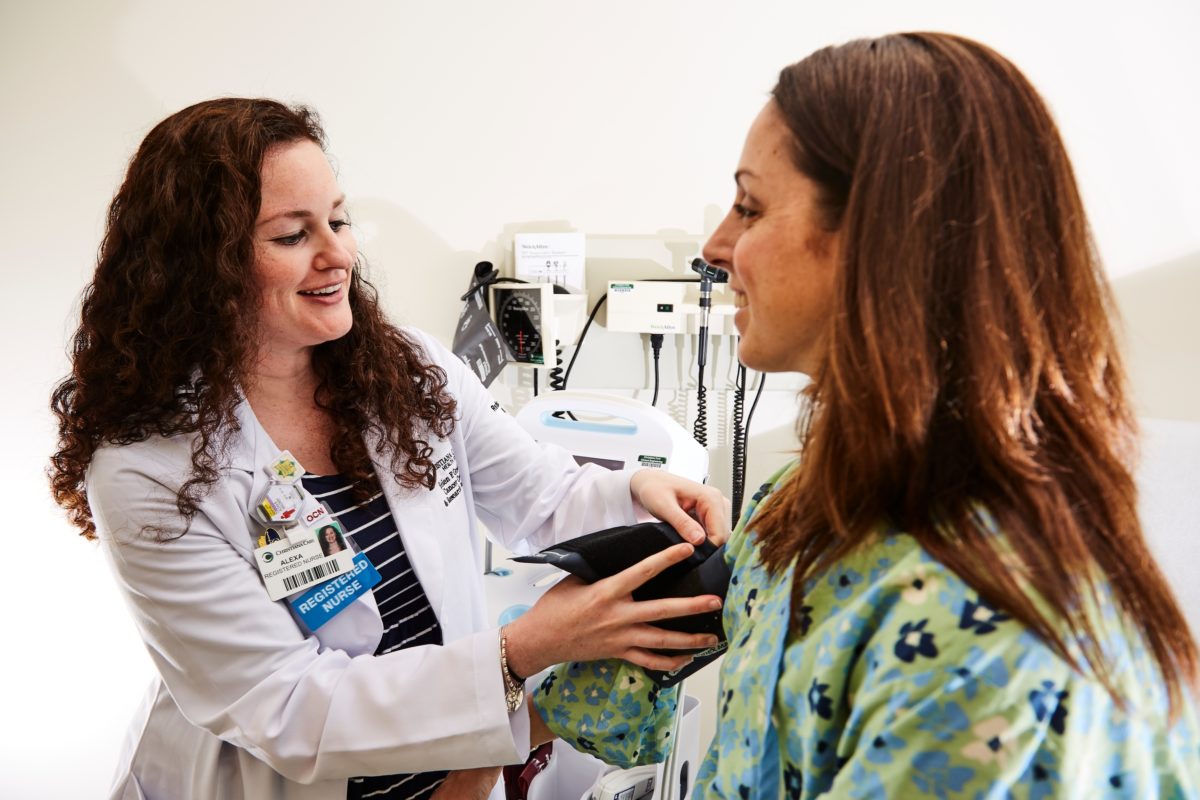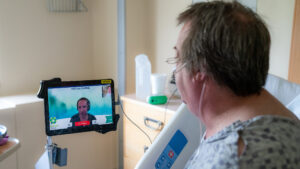On the path to being exceptional today and even better tomorrow, Christiana Care has introduced a three-tiered clinical ladder for nurses in outpatient settings. The clinical ladder is a professional advancement model that recognizes and rewards experience, knowledge and clinical expertise, allowing frontline nurses to continually improve their skills and to practice at the top of their nursing license.
Christiana Care’s three-tiered clinical ladder in outpatient — or ambulatory — nursing is the first of its kind in Delaware. It includes nurses in such areas as primary care practices, specialty care practices and the Visiting Nurse Association.
“Clinical ladder programs provide nurses with the opportunity to improve clinical skills, develop leadership talent and advance professionally, while remaining in direct care,” said Ric Cuming, Ed.D., MSN, RN, NEA-BC. “Expanding the advancement program to include direct-care colleagues in ambulatory settings will advance optimal health the communities we serve.”
Susan Sinigaglio, MSN, RN III, CCRN, CCRP, is a lead nurse in Cardiac Rehabilitation at Christiana Care.
“The RN III gives you a goal — something to work for,” said Sinigaglio. “It brings nursing up to another level. You learn by doing, and there are a lot of ways to improve patient care.”
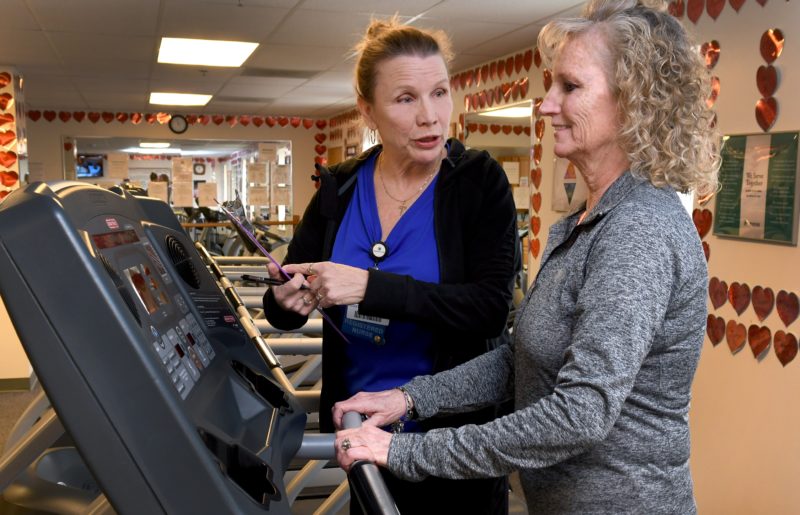
The inpatient ladder began at Christiana Care in 2002 with the RN I level — a designation automatically assigned to newly hired nurses with less than six months’ experience. The inpatient ladder has expanded to RN IV, for expert clinicians with master’s degrees at the highest level of professional practice.
The ladder gives frontline nurses an opportunity for advancement without having to leave their chosen area of care or become an administrator.
“Some nurses think the only way they can advance is to become a manager, but we really want them to know that they can advance clinically, professionally and by salary in the work that they are doing every day,” said Cynthia Griffin, MS, BSN, RN, CPHQ, CCM, Christiana Care’s chief nursing officer, community care.
Requirements for the RN III include the completion of a Bachelor of Nursing. Studies link nursing education to better clinical outcomes, according to the 2010 Institute of Medicine report “The Future of Nursing: Leading Change, Advancing Health.” The report recommended that 80 percent of nurses should have a bachelor’s degree in nursing by 2020. Today 77 percent of Christiana Care nurses have a bachelor’s degree or higher.
Sustained movement toward that goal is required to earn the Magnet® designation, the highest level of recognition for sustained nursing excellence, from the American Nurses Credentialing Center. In 2010, Christiana Care was the first Delaware health system to earn Magnet and the first to achieve re-designation in 2015.
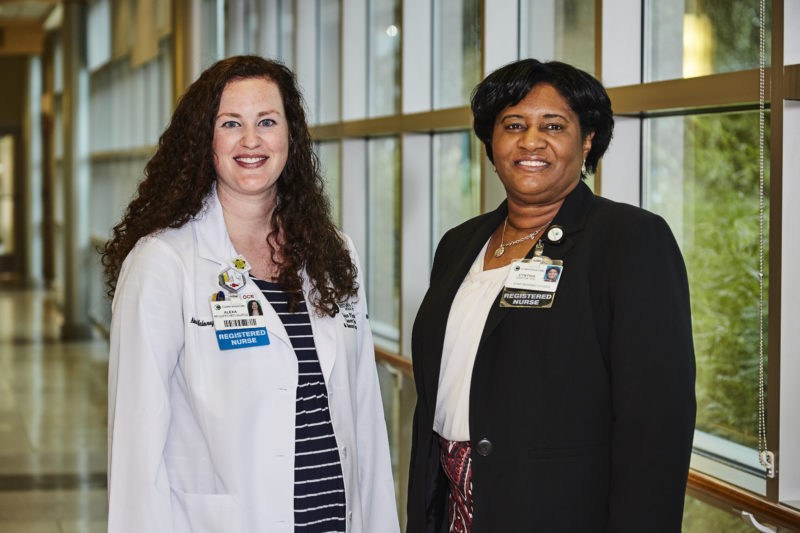
To achieve an RN III, nurses also must complete a project related to their clinical area.
In her cardiac rehab project, Sinigaglio helped create a shared decision-making committee to identify ways to increase the graduation rate for patients enrolled in a 36-session program. There are multiple reasons patients drop out, and the committee is analyzing the data, a task that previously would have fallen on managers’ shoulders.
Many nurses on the clinical ladder have published the results of their projects and present their findings at conferences, said Dot Fowler, MSN, RN-BC Emeritus, APRN Retired, nursing professional advancement coordinator. Fowler helped develop the clinical ladder program at Christiana Care.
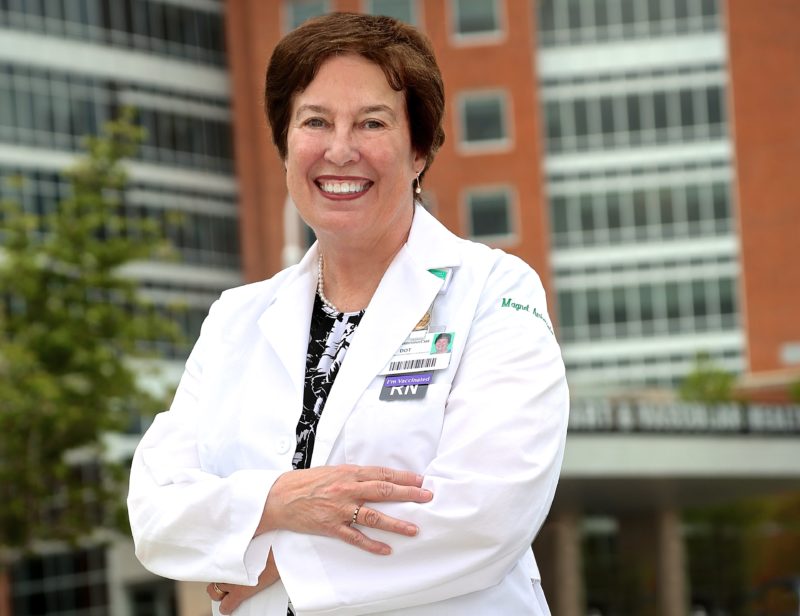
The clinical ladder and the Magnet designation are valuable tools for recruitment and retention. “I’ve talked with many new nurses who said these were factors when they were considering employment,” Fowler said.
Alexa Maloney, BSN, RN III-BC, OCN, a radiation oncology nurse at the Helen F. Graham Cancer Center & Research Institute, was one of the first ambulatory care nurses to be promoted under the expanded program. Maloney participated in a project to improve patient education and satisfaction. “We want to address patients’ fears and concerns during their exam for radiation treatment,” she said. She’s also working on an education program for patients with head and neck cancer to improve medication compliance and health literacy.
“The clinical ladder motivates me and inspires me to want to be better, learn more and become certified in other areas,” Maloney said. “Ultimately, it’s about providing better care for the patients.”
Learn more about nursing careers at Christiana Care.
